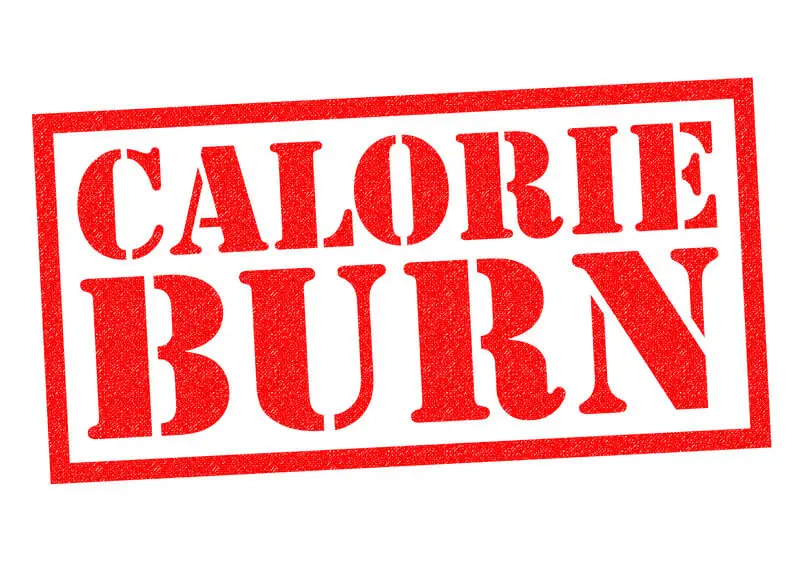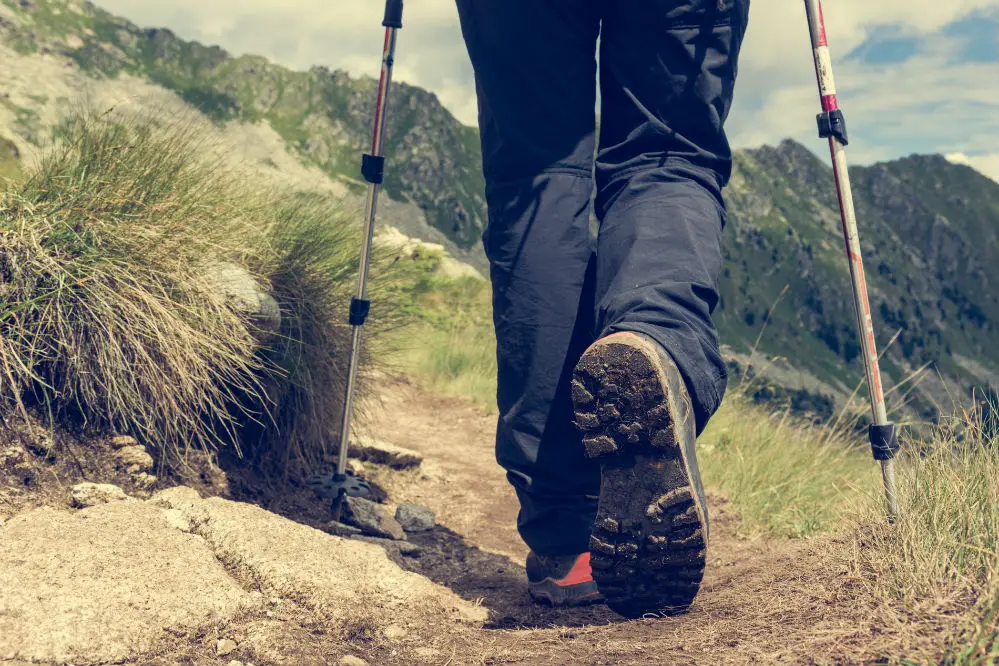
One of the many benefits of hiking is that it’s a great physical workout, helping you to stay in shape and burn off calories. There are many reasons that you may want to find out how many calories you’re burning while hiking.
For example, if you’re looking to combine your love of the great outdoors with losing weight, finding out how many calories you use can help you to effectively plan your weight-loss goals.
Alternatively, you may want to make sure you’re optimizing your nutrition for performance, or to work out how much food to take with you on a long hiking trip.
Here’s a breakdown of the main factors that affect the number of calories you go through on a hike, to help you to answer your question – how many calories do you burn hiking?
Body Weight
Your body weight affects how many calories you use up, the heavier you are, the more you will burn off per hour.
When hiking, rather than just walking on the flat, it is estimated that a person weighing 155 lb will burn around 446 calories per hour, with someone who weighs 185 lb using 532 calories per hour. However, this is really only an approximate amount to be used as a guideline. .
If we consider the same two persons but for an hour’s walk at 3.5 mph, the estimates drop to 298 and 356 respectively. From looking at these two sets of figures it’s clear that the hiking estimates account for much more calories than simply walking and body weight alone.
In order to find out how much more you will need to add on to make your own estimate of how many calories you burn while hiking, you will need to take the following factors into consideration.
Distance
This speaks for itself, the greater the distance you cover, the more calories you burn.
Once you’ve decided on your trail, you can begin to work out the number of calories that you’ll be burning by factoring in any variables that will affect this, such as how long you intend to take, your pace and what types of terrain you’ll cover.
Speed
The faster you go, the more calories you burn. Let’s compare the calories burnt per hour for someone who weighs 185 lb at walking pace (3.5mph) 356 calories, at a brisk walk (4.5mph) 444 calories, and jogging (5 mph) 710 calories.
As you can see, increasing your speed and intensity greatly increases the number of calories burnt. While you don’t have to go full out speed hiking or fastpacking, if you are looking to burn off extra calories or to raise your cardiovascular fitness you could increase your speed, terrain and stamina permitting of course.
What’s more, research has found that a strenuous hike can temporarily raise your metabolism for several hours afterwards.
This can mean a general increase in the number of calories you burn for up to 14 hours following your hike, so it can be worth putting in the extra effort to really maximize your caloric consumption.
Terrain
Steep inclines and more challenging terrain will greatly increase the number of calories that you use during your hike.
It is estimated that a 5-10% gradient will increase the number of calories you burn by as much as 30-40%. Differences in terrain will help to work out different muscles and contribute to an effective calorie-busting workout.
The beauty of hiking is often found in the huge diversity that you come across in nature and you may not fully appreciate just how many different types of terrain you’re actually navigating.
If your local hikes are mostly flat grasslands you always have the option to increase your speed if you’re looking to increase your caloric consumption.
Trekking Poles
Using trekking poles will increase your upper body movement, this will use more calories as you are moving more of your body, whilst increasing circulation and reducing fatigue.
Although using trekking poles as hiking aides will not burn off quite as many extra calories as going in for the full Nordic walking regime, hiking with trekking poles is likely to burn off at least an extra calorie per minute.

Backpack
Carrying a backpack while hiking will add a lot to the number of calories that you go through. A heavy load for a long trip can easily burn as many as 200 calories an hour more than hiking without a backpack.
Good planning and local knowledge can help you to pack light to avoid having to carry huge amounts where possible.
Lighter backpacks that contain a minimum of equipment and supplies for a day’s hiking will probably cause you to consume an extra 50 to 100 calories per hour.
If you’re looking to add extra weight to a short hike to burn a maximum of calories, carrying extra water is a good option as you can always lose the extra if you change your mind along the way or if you need to get back quicker, without causing any damage to the local environment.
Conclusion
So, how many calories do you burn hiking? There are many factors to take into account and in the majority of cases it’s usually a lot more than you realize.
Once you’ve factored in for a full day’s hiking, with a body weight of around 185 lbs, a heavy backpack and some challenging terrain, the average amount of calories burnt is going to be around 5,000.
On the other hand, if you go for a 2 hour hike with easy-going terrain and a very light load, you’re probably looking at about 900 calories.
If you take into account the factors that we’ve looked at you can easily reach a ballpark figure for your requirements. Overall though, hiking is a great exercise for your heart, mind and general health.
Just as each and every hike is different, the number of calories you burn off hiking will vary each time. There are plenty of variables that you can control in order to alter the amount.
You might find it useful to choose trips with more gradient, to carry extra weight or to alter your pace if you’re looking to increase the number of calories that you consume.
However, don’t let your calorie counting get in the way of your enjoyment, explore, let your mind wander freely and immerse yourself in the great outdoors.